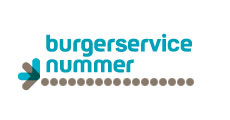Working in The Netherlands | Employment in Holland
If you want to come and work in the Netherlands, you probably have many questions. What are the legal criteria to be able to work in the Netherlands? How do you do get a visa? Are you allowed to work in the Netherlands?
Together Abroad Jobboard informs about all these questions.
In order to be able to work in this country you should have a valid:
- Visa and work permit
- BSN number
Work permit in Holland
If you have a nationality of a EU country, the European Economic Area (EEA) or Switzerland, you don't need to have a visa/residence permit or work permit. This is known as the freedom of movement of workers. THe citizens form Bulgaria and Romania canalso work freely starting form 1/01/2014.
If you have Chroatian nationalitiy the residence permit is not required, but you do still need a permit to be able to work in the Netherlands.
The rest of the nationalities do need to have both residence permit and work permit in order to be able to work in the Netherlands with the exception graduates from Dutch reserach Universities and Universities of Applied Science (HBO). Due to the new job seeking year regulation for international students from outside the EU/EEA who have successfully completed a degree in the Netherlands. They can remain in the Netherlands for an additional year to look for a permanent position as high skilled professionals. During the search year they require no permit for working in the Netherlands.
Citizen Service Number (BSN) in Holland

You are not allowed to work in the Netherlands without Citizen Service Number (BSN, Burgerservicenummer). This is a unique identity number for your contacts with the state. You will get your Citizen Service Number when you register with a Dutch municipality.
If you are not registered with a Dutch municipality and you cannot get a BSN, you can use a so-called ‘sofi number’ (an abbreviation of social-fiscal number), which you will get from the Tax and Customs Administration.
For more information go the the site of the Tax Services.
Finding a Job in Holland
Since English is the working language of many commercial organisations in the Netherlands, including most of the international and multi-national companies based there, it is often more important to be able to speak fluent English than to speak Dutch when seeking employment there. For native speakers of English and other languages seeking low-skilled work, there are also many employment opportunities in the many international call centres located in the main cities of the Netherlands.
There are various ways to find a job in the Netherlands, which include checking the job vacancies sections of the national or regional press, looking on internet jobsites, applying direct to employers, or using employment or recruitment agencies. However, over 60% of all job vacancies are filled reportedly filled by informal methods, so a good network of contacts in the Netherlands might be the most valuable source of information on jobs in your area of expertise. You can also join business networking associations such as network-club.com, a web-based English-speaking club which holds regularly meetings throughout the Netherlands.
Many jobs are advertised in English in the Saturday editions of the national press, with different newspapers specialising in particular types of vacancies. For example, NRC Handelsblad is a useful source of information on management-level posts, De Volkskrant specialises in public sector, academic and medical vacancies, De Telegraaf and the Algemeen Dagblad advertise many administrative and technical jobs, and Het Financieele Dagblad has adverts for jobs in the financial sector. Additionally, the free magazines Metro and Spits, which can be found on weekdays in rail and bus stations, carry many job advertisements, as do several classifieds papers which are on sale weekly and include Via Via, De Partikulier and Intermediair.
There are also many online jobsites advertising vacancies in the Netherlands, and many of these allow jobseekers to post their own CVs for perusal by prospective employers. Useful online sources of information on jobs in Holland include EURES, the European employment services website for jobseekers and employers throughout Europe, the website of the Centre for Work and Income (CWI) at https://www.werk.nl, Holland's public employment services, and the websites of private employment agencies. In the Netherlands, employment agencies generally deal with vacancies for non-specialized areas of work, while recruitment agencies assist people with various types of specialist or senior level jobs. A word of warning on the use of agencies: any legal job in The Netherlands requires a work permit, whether it is obtained through an employer or through the CWI. Without a work permit hiring a foreign national is illegal. Another stumbling block may be that most jobs advertised through agencies require a command of Dutch.
It is also very common for jobseekers in the Netherlands to approach companies direct to enquire about employment opportunities, or to apply for vacancies advertised on their websites.
Around 4% of all employees in the Netherlands work via recruitment agencies which post them on a temporary basis to other organisations. If you are allowed to work in the Netherlands without a work permit you might be able to find temporary work through agencies such as USG, Undutchable, Adams Recruitment, Unique Multilinqual Services, Madison Parker, Randstadt, Manpower and Start.
When applying for jobs in the Netherlands, you should send your Curriculum Vitae (CV), along with a covering letter explaining why you are interested in the post and why you feel that the company should employ you. Unless applying to a large multinational organisation, your covering letter should preferably be in Dutch and should be no longer than one page; your CV should be tailored to the post you are applying for, and should ideally not exceed two pages. It should include details of your work experience, followed by your education, arranged in chronological order. Application forms are also sometimes used by larger organisations, or for online applications.
